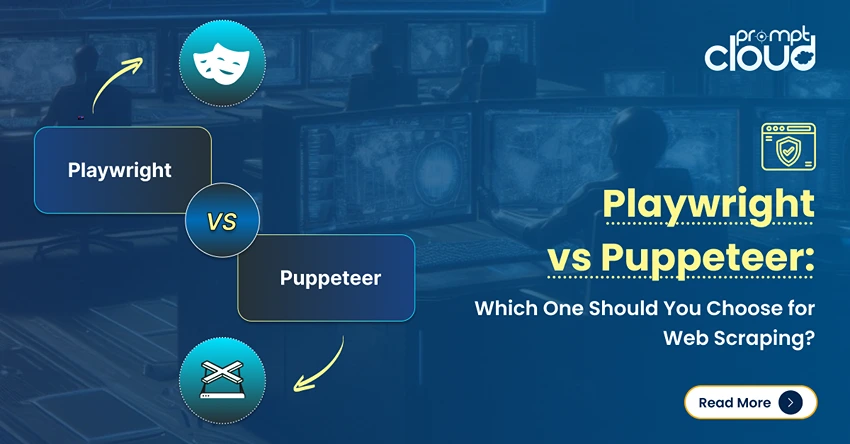Scraping Sports Data may be the difference between building a winning or losing team.. Many of us might have seen or heard of the 2011 biographical drama, Moneyball which is an account of a basketball team’s manager’s attempt to assemble a winning team using data and a limited budget. Ever since different metrics related to athletes have been released and updated online, teams have used the data to boost performance, revenue and fan following.
Today, coaches and managers are using data to build a team in which each player may not be a star player, but where each complement another and together create a winning combination. In earlier days, most of the data had to be fetched manually, and hence there was a limitation on the amount of data you could gather or the computations that you could run. Today, you can find data on any player on the web and this data gets updated regularly. All you need to have is a web scraping system in place, where you can enter names and get the specific data points that you wish to look at.
What Sports Data Can you Scrape?
The internet can provide you with almost limitless data, but you need to have a list of data-points that are relevant to your study. The most common metrics are wins, losses, goals, passes, runs and wickets, but you can also dig deeper when you are analyzing a single sport. In case you are putting together a premier league team for cricket you should be looking at metrics like:
a). Wickets were taken
b). Batting average
c). Batting at which number presently
d). A number of dot balls per over
e). Bowler type
f). The average speed of balls.
g). Catches in last 10 matches by the keeper
Similarly, for a football team, you would be looking at factors like:
a). Goals scored in last season
b). Goals saved
c). The ratio of shots on vs shots off-target
d). Shots to goal ratio
e). Ball possession percentage
f). Total distance sprinted
g). Interceptions
Based on the sports that a manager is putting together a team for, he or she will need to go into different levels of metrics to make sure that the sum adds up to a winning combination. Thanks to the growth of machine learning and big data analytics, managers, coaches, and even team owners use a team of software engineers and data scientists to find replacements, decide which players to buy and which to let go of. These data-backed teams are often the most successful ones.
The Advantage of Scraping Sports Data
The winning recipe for any sports is supposed to be hard work and strategy, with a little pinch of luck. But does the team that plays harder always win? And how do you decide which strategy is better without applying it? In reality, you need to start strategizing long before the game – coaches and managers need to start when the team itself is being put together.
Data is the key to success in every field today, and the same applies to the green fields of sporting events. While there’s a lot of data at hand, one needs to analyse it deeply, see which observations make sense when put to real use, and which don’t. There’s quite a bit of trial and error that may be required in the beginning but once you have seen your data-driven team play a few matches, you would know what is missing and what’s working out.

Selectors for national teams have often been held responsible for picking players only based on the “star factor”, the gut feeling, and prior results. Data-driven teams can also make the work of national selectors easier, and they can even choose backup players so that they have a near-perfect team for different scenarios and against different opponents.
The Challenges
Coaches and teams that rely on data to take the game up a notch, need to make sure that the data at hand is broad enough so that no inherent bias creeps in. For example, if you are evaluating a footballer and you only use his metrics from the home ground matches, you might be let down if you expect him to perform similarly in away matches. In another instance, when you are evaluating tennis players, you need to evaluate their performance on the different types of courts separately – hard courts, clay courts, carpet courts, and grass courts.

Evaluating the different figures associated with a single player is much easier as compared to evaluating the metrics of hundreds of players and putting together a team. When it comes to building a team, you wouldn’t want to have 11 players with all of them being goal scorers. You will need defenders who can defend and intercept well, midfielders who are adept at passing and forward players who can take the final shot.
On top of this, you would also need to have some of your strikers being good at taking corners and penalties. The number of factors to consider is almost infinite, but your chances of winning will increase based on the number of yardsticks you take into account.
Finding the Source of Sports Data
Data and statistics have always played a crucial role in sports and every single sporting event displays important records and achievements of players for the crowds to cheer. Commentators also indulge viewers with interesting trivia while a game is on. Data has been the reason why many “star-players” were born and this not only attracts team managers but also brands that often want the highest goal scorers or the fastest runners to endorse their products.
We have taken a mile-long stride from there, and today we can use big data analytics and AI, to unlock the source code of sports. We can find which factors count at what time, Machines can tell you the chances of one team winning against another with a high degree of precision. Today, multiple companies use Sports Data to provide essential figures and statistics to news agencies, sports enthusiasts as well as teams.

While single figures may be easy to consume, companies like Hudl are also helping coaches and managers in analysing video recordings of sporting events to understand players better. This task which took up hours for managers has now been reduced only to the decision-making stage.
How Can you Leverage Sports Data in Fantasy Leagues?
Fantasy sports leagues started as a hobby for sports fans. Users would choose their favorite players to create their dream team and hope that they played well in the upcoming season. Such random picks, usually driven by instincts fail to pay off on most occasions.
The new players in this arena are data nerds who are instead pulling real-world data to create a career out of playing fantasy leagues. For these new players, it is no more a gamble. They are extrapolating historical data, running machine learning models on player metrics, and calculating probabilities of different outcomes.
The Role of Web Scraping
In the bigger picture involving Sports Data and analytics, the starting point has to be data scraped from the web. The reason behind this is simple. Say you are tracking the runs scored by a batsman, and the person in question is playing a match at the very moment. The only way you would have the updated runs is if you scrape data from the web. The internet not only holds data of almost every sporting event and individual athletes but also gets updated every second. Scraping this data in real-time can enable you to create solutions that always use the latest data to paint the most accurate picture.
Our team at PromptCloud goes an extra mile to make sure that our partner can scrape any data from the web. Whether you need data to analyze player metrics or their social-media highlights to understand which one would be best for your advertisement-shoot, we can provide you with the data in a consumable format. Being one of the most trusted DaaS service providers in the market, we cater to a variety of businesses and our portfolio keeps expanding as newer sectors and niches move to the web to run their business with ease, with the help of data.



















